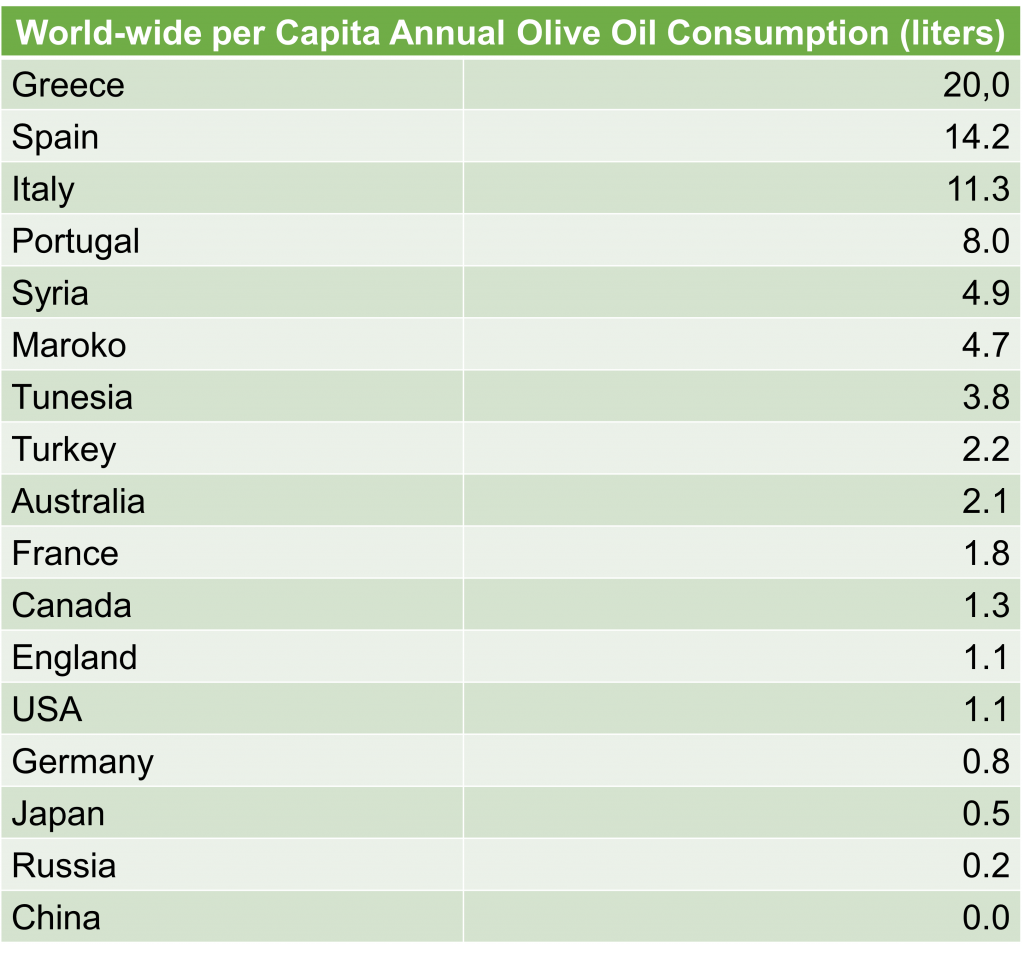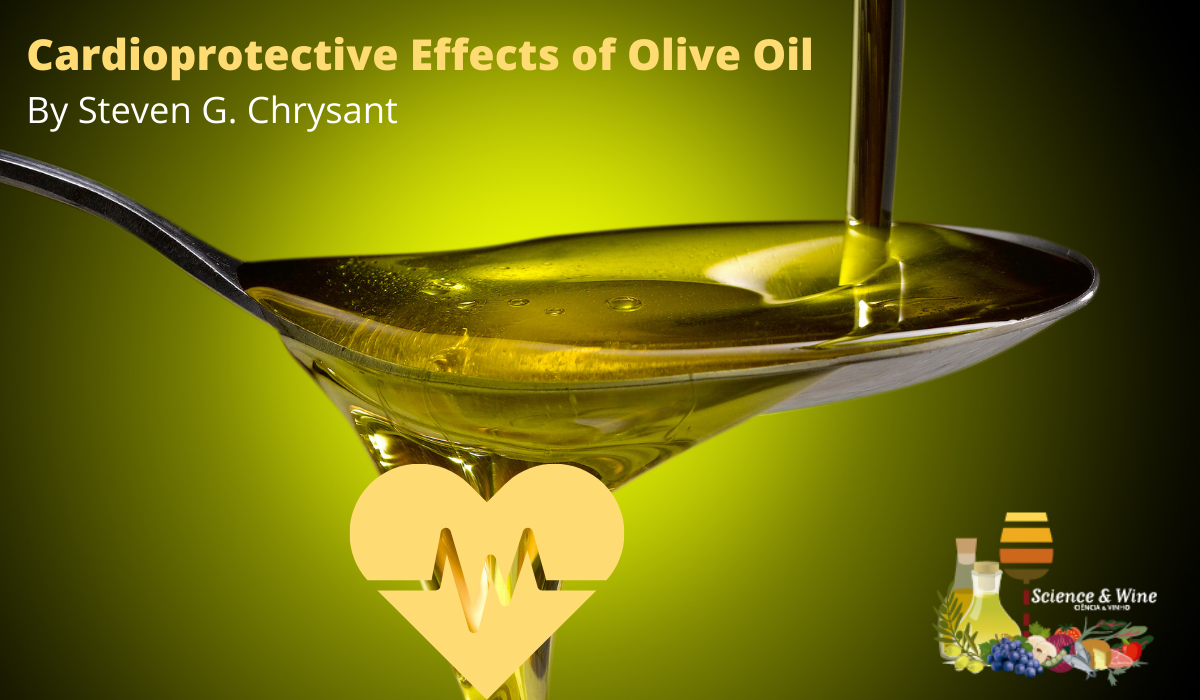By Steven G. Chrysant
Cardiovascular diseases are a leading cause of death and disability. Cardiovascular disease accounted for 17.3 million global deaths per year in 2013 and for 808,000.00 cardiovascular deaths in the USA resulting $316.1 billion in cardiac care costs. These cardiovascular complications could be prevented by diet modification and lifestyle changes. Among the dietary modifications are the reduction in the consumption of saturated fatty acids and their replacement with mono or polyunsaturated fatty acids. Olive oil is a monounsaturated fatty acid and its consumption is associated with significant reduction of coronary artery disease, myocardial infarction, blood pressure and diabetes mellitus.

The cardioprotective effects of olive oil are mostly, due to its content of significant amounts of polyphenols, vitamin E, and other ingredients that significant antioxidant and antiinflammatory properties. Several prospective and epidemiologic studies have demonstrated a significant reduction of cardiovascular diseases, which are proportional to the amount of olive oil consumption. The significance of oil in cardiovascular disease prevention was first demonstrated by the pivotal work of Keys and its associates in the people of the Greek island of Crete. Olive oil exerts its cardioprotective effects through several metabolic as well as clinical factors. Among its metabolic factors are reductions in low density lipoprotein cholesterol (LDL), and triglycerides and increase in high density lipoprotein cholesterol (HDL), decrease in oxidative stress and increase in vasodilating prostagladins E2, decrease in inflammation by decreasing the levels of interlukin 6 and 1β as well as the tissue necrosis factor (IL-6, IL-1β, TSF), decrease in platelet aggregation and prevention of clot formation, a major cause of myocardial infarction, and also decrease in the incidence of diabetes mellitus, another cause of cardiovascular disease. These metabolic effects of olive oil lead to the prevention of atherosclerosis, which is a major cause of cardiovascular disease. Among its clinical factors, these include, decrease in obesity, and decrease in blood pressure. However, despite the significant beneficial cardiovascular effects of olive oil, its consumption is still low in the western countries in including the USA, Canada, Australia and Northern European countries including England. In contrast, the consumption of olive oil is high in Southern European countries like Greece, Italy, Spain, and Portugal. Among these countries the highest consumption of olive oil is Greece, followed by Spain, Italy, and Portugal. According to a recent survey, the per capita olive oil consumption is low worldwide as demonstrated in the table.

Therefore, significant efforts are required by the heath authorities of the various countries to demonstrate the significant cardiovascular benefits of olive and its consumption with a concomitant decrease in the consumption of saturated fats. In this regard, the Mediterranean diet, which consists of high content of olive oil, fruits and vegetables, is very important and it should be incorporated in the diets of many countries where the consumption of olive oil is low. Fortunately, the US Department of Agriculture has incorporated the Mediterranean diet among its dietary recommendations. The same thing should be done by other countries.

Steven G. Chrysant, MD, PhD Clinical Professor of Medicine University of Oklahoma 5700 Mistletoe Court Oklahoma City, OK 73142 (405) 748-6035

